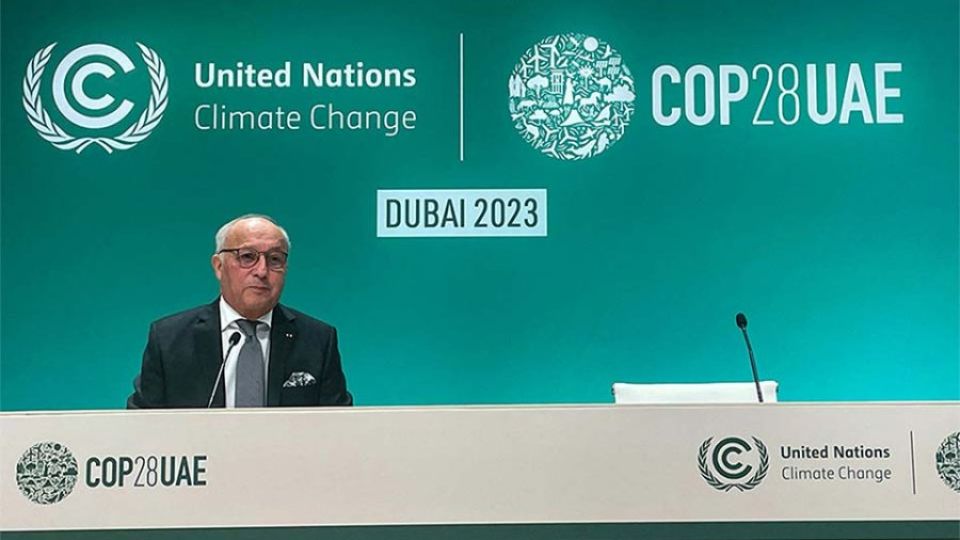February 11, 2025
JAKARTA – The world was disappointed but not surprised when United States President Donald Trump, just after his return to the White House, announced the country’s withdrawal from the Paris Climate Agreement for the second time, undermining global efforts to lessen the impacts of the planetary crisis.
But special presidential envoy for energy and environment Hashim Djojohadikusumo has caught many people off guard for suggesting that Indonesia follow in Trump’s footsteps, albeit for a different reason. Hashim, also the younger brother of President Prabowo Subianto, questioned why Indonesia should comply with the climate pact if the US refused to stick to the agreement.
He later noted the “injustice” of such a climate deal because Indonesia, with 3 tonnes of annual carbon emissions per capita, had been demanded to shut down coal-fired power plants by countries like the US, which has much higher emissions but lower climate commitments.
Energy and Mineral Resources Minister Bahlil Lahadalia jumped on the bandwagon by saying that he was confused with the pressure to commit to the climate deal, when the US, one of the key initiators of the world agreement, withdrew from it.
Such statements have sent a wrong signal regarding a loss of confidence in the Paris Agreement, if not the government’s intention to defy our responsibility as a party to the historic deal. Hashim and Bahlil are known to have close ties with the coal industry, but as part of a government that is committed to energy transition toward net zero emissions, they should have not made such statements in the first place.
We surely do not want to buy Trump’s anti-science rhetoric by withdrawing from the agreement, which underlines and monitors global commitment to mitigating and adapting to the climate crisis.
Yes, we have to admit that the agreement and overall global climate negotiations are unfair toward developing countries like Indonesia. The long, often-disrupted climate talks in Egypt and Azerbaijan in the past two years, for example, only produced small results that do not often help the Global South survive the crisis.
But that does not justify countries like Indonesia an exit from the treaty.
Withdrawing from the Paris Agreement may cause Indonesia to lose its credibility on climate discourse, just as the US is facing now. Indonesia could also lose access to funding for, among other projects, rebuilding areas damaged by climate-induced weather disasters or fulfilling its national energy needs with renewable sources; the latter of which would cost the country about US$62 billion per year until 2060.
In contrast to Bahlil’s argument that Indonesia still needs to fire coal to fulfill its electricity needs, we should start phasing down, or out, from coal in our energy mix. Coal is one of the fossil fuels that emit greenhouse gases like methane and carbon dioxide, which raise the global average temperature.
The hotter the planet is, the more extreme weather events unfold in many parts of the world, including in Indonesia that already saw more than 6,000 climate related disasters last year. Surely, we do not want more disasters to happen in the coming years and closer to our home.
We can breathe a sigh of relief for now after the Environment Ministry said Indonesia had benefitted from signing climate treaties including the Paris Agreement. The ministry also asserted that Indonesia needs to demonstrate its commitment to addressing global environmental impacts.
Rather than withdrawing from the treaty, Indonesia should up its game in the negotiation room. Officials and diplomats should realize President Prabowo’s vision of making Indonesia the leader of the Global South, including in climate negotiations. Indonesia can rise to the challenge at the climate conference in Brazil at the end of the year by leading talks on climate finances, emphasizing that developing countries should contribute.
The controversial statements from Hashim and Bahlil only confirm the inconsistency between the country’s promise and reality when it comes to promoting green energy. By resigning from any small progress made in climate mitigation and adaptation, Indonesia will be remembered as the one responsible for calamities and deaths caused by the unabated climate crisis.


